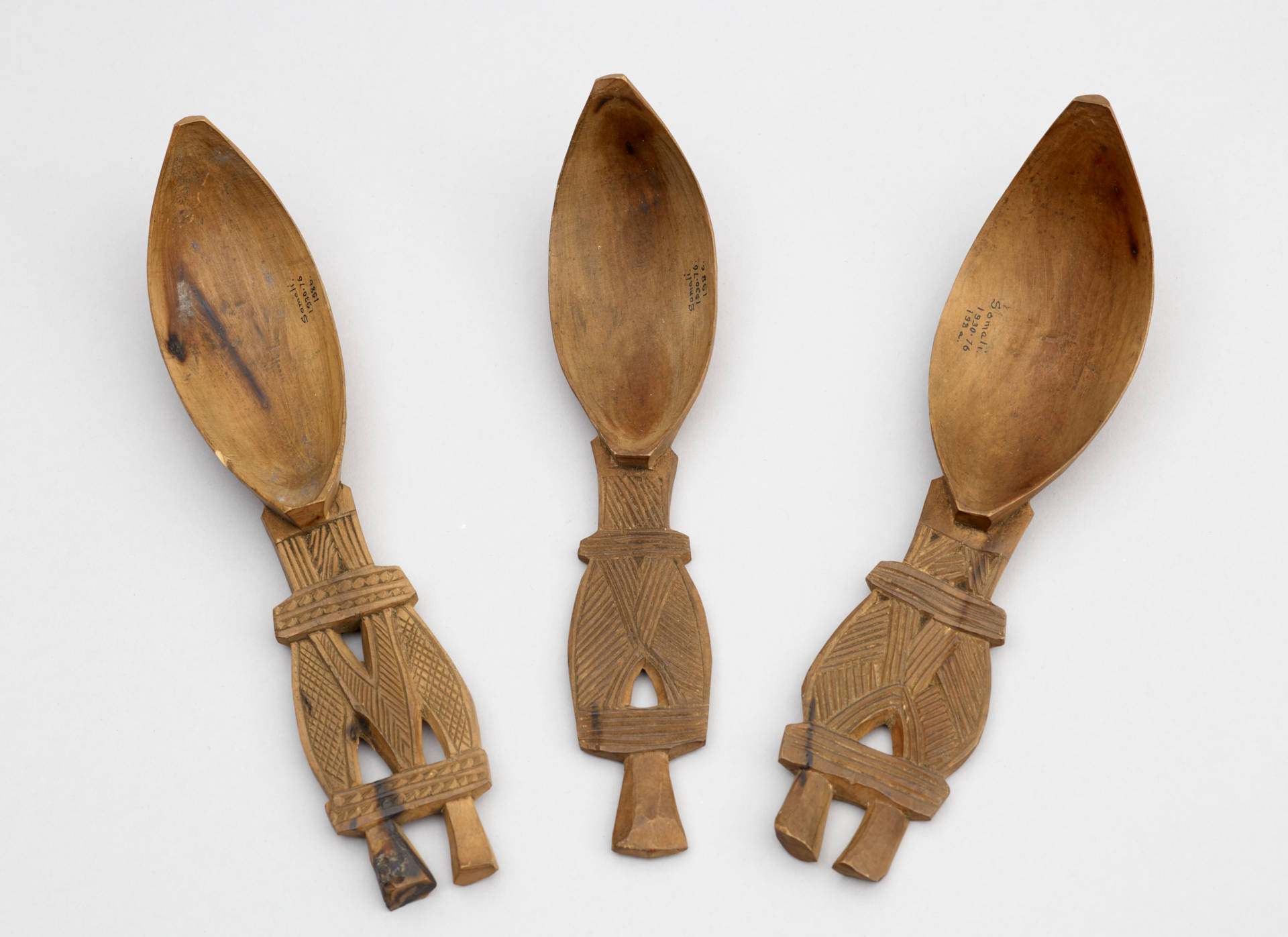
in Ελληνικά / Greek translated by Chrysoula
This object has been translated into 9 different languages by 9 different users
Αυτά τα σκαλισμένα κουτάλια είναι από τη Σομαλία στην Αφρική, είναι φτιαγμένα από τοπικά υλικά και είναι φτιαγμένα για να διαρκούν. Οι Σομαλοί άνδρες συνήθως χαράζουν αυτά τα κουτάλια (μερικές φορές γνωστά ως fandal ή qaado) από ένα φυτό που ονομάζεται xagar και είναι γνωστά για τα περίπλοκα γεωμετρικά τους σχέδια. Εκτός από το ότι είναι όμορφα καθημερινά αντικείμενα, προέρχονται επίσης από βιώσιμες πηγές. Όταν αγοράζετε κάτι καινούργιο, τι ψάχνετε σεαυτό που αγοράζετε;
Generally, I used literal translation this time (word-for-word) because the text is relatively simple and short. However, I removed the noun from the last sentence before the question ‘they are also sustainably sourced’ and I translated into ‘προέρχονταιεπίσηςαπόβιώσιμεςπηγές’. In Greek, sometimes brevity comes before clarity. As a result, nouns can be removed as repetition is normally not ideal.
Report License: CC Attribution - Creative Commons Learn moreDo you have something you’d like to say, in your own language or English, about the object or translation? We’d like to hear what you think.
Translations are community-sourced and for anyone to participate in, however you use your language. For more information, see Community Guidelines.
22 Oct, 2025
We live in Manchester and it’s so nice to see Somali objects and Somali language at the Manchester Museum.
22 Oct, 2025
waxaan ku noolalahay manchester aad bay u fiiicantahay in aan ku aragno waxayalaha somali iyo luuqada hidi iyo dhaqanka somaliga ee manchester
27 Jun, 2023
In Romani – the spoons made us think about a Roma group called Lingurari (spoon makers), who used to make a living out of carving spoons and other everyday objects. We talked about the past and present of the Lingurari group, and the way they used to make a living through their wood carving. The group is still known as Lingurari even though the trades are being lost. A lot of Roma groups are still known by their trade name this way.
In the audio, a mum is telling her kids about the tradition.
25 Apr, 2023
In Somali